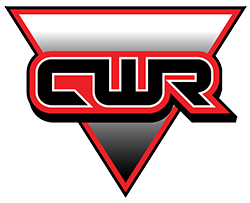Understanding the Difference Between Commercial and Industrial Refrigeration
Refrigeration is essential across many sectors, from preserving food in supermarkets to maintaining the correct environment for industrial processes. While both commercial and industrial refrigeration serve the primary purpose of cooling and preserving, their applications, designs, and scale vary significantly.
Let’s explore the key differences between commercial and industrial refrigeration, shedding light on their functionalities, design complexities, and typical uses.
Commercial Refrigeration: Overview and Applications
Commercial refrigeration is commonly seen in settings such as restaurants, grocery stores, and convenience shops. These systems are designed to store food products and beverages at safe temperatures for consumption. The primary goal is to keep perishable goods fresh and prevent spoilage while allowing for easy access and attractive display.
Key Characteristics of Commercial Refrigeration
Commercial units are typically smaller and are designed to fit within retail spaces. They range from single refrigerator units to larger walk-in coolers. These systems are often designed for frequent opening and closing. They provide easy access to stored items through front-facing doors or open casings for quick retrieval by staff or customers.
Commercial refrigerators are built with aesthetics in mind, often featuring glass doors and internal lighting to enhance product visibility and encourage sales. Most commercial refrigerators operate within a range needed to preserve food and beverages, generally around 1°C to 4°C (34°F to 39°F).
Industrial Refrigeration: Overview and Applications
Industrial refrigeration systems are utilized in large-scale production and storage facilities, including chemical plants, pharmaceutical manufacturing, and large-scale food processing plants. These systems are crucial for processes requiring precise temperature control well beyond just cooling.
Key Characteristics of Industrial Refrigeration
Industrial systems are typically larger and more complex than commercial ones, often custom-designed to meet specific cooling demands of an industrial operation. These refrigerators can reach much lower temperatures needed in special manufacturing processes, including deep freezing. Systems are equipped with advanced controls for maintaining precise temperatures.
Given their scale, industrial refrigeration systems are often designed to optimize energy use and reduce operational costs, sometimes integrating with facility-wide HVAC systems. These units are built for durability and continuous use, with robust maintenance schedules to prevent downtime critical to production lines.
Comparative Analysis: Usage and Needs
Commercial vs. Industrial Refrigeration:
- Purpose and scale. Commercial refrigeration focuses on consumer-level storage and sales, while industrial refrigeration deals with production processes and bulk storage under stringent conditions.
- Industrial setups are often custom-built to cater to specific manufacturing needs and might include features like blast chillers or ammonia-based cooling systems, unlike more standardized commercial units.
- Regulatory and safety requirements. Industrial refrigeration may be subject to more stringent safety and environmental regulations due to the chemicals and cooling methods used, such as ammonia, which requires careful handling and compliance with safety standards.
Wrapping Up
The choice between commercial and industrial refrigeration depends on the scale of the operation, specific temperature needs, and the nature of the products or processes involved. Understanding these differences helps businesses select the appropriate refrigeration solution that aligns with their operational needs and regulatory requirements.
Whether it’s preserving the freshness of food in a supermarket or ensuring the integrity of pharmaceuticals, Central Washington Refrigeration can meet your needs. We design, build, and install custom refrigeration systems for businesses. Let us create a system that will meet your specific industry or business requirements!
